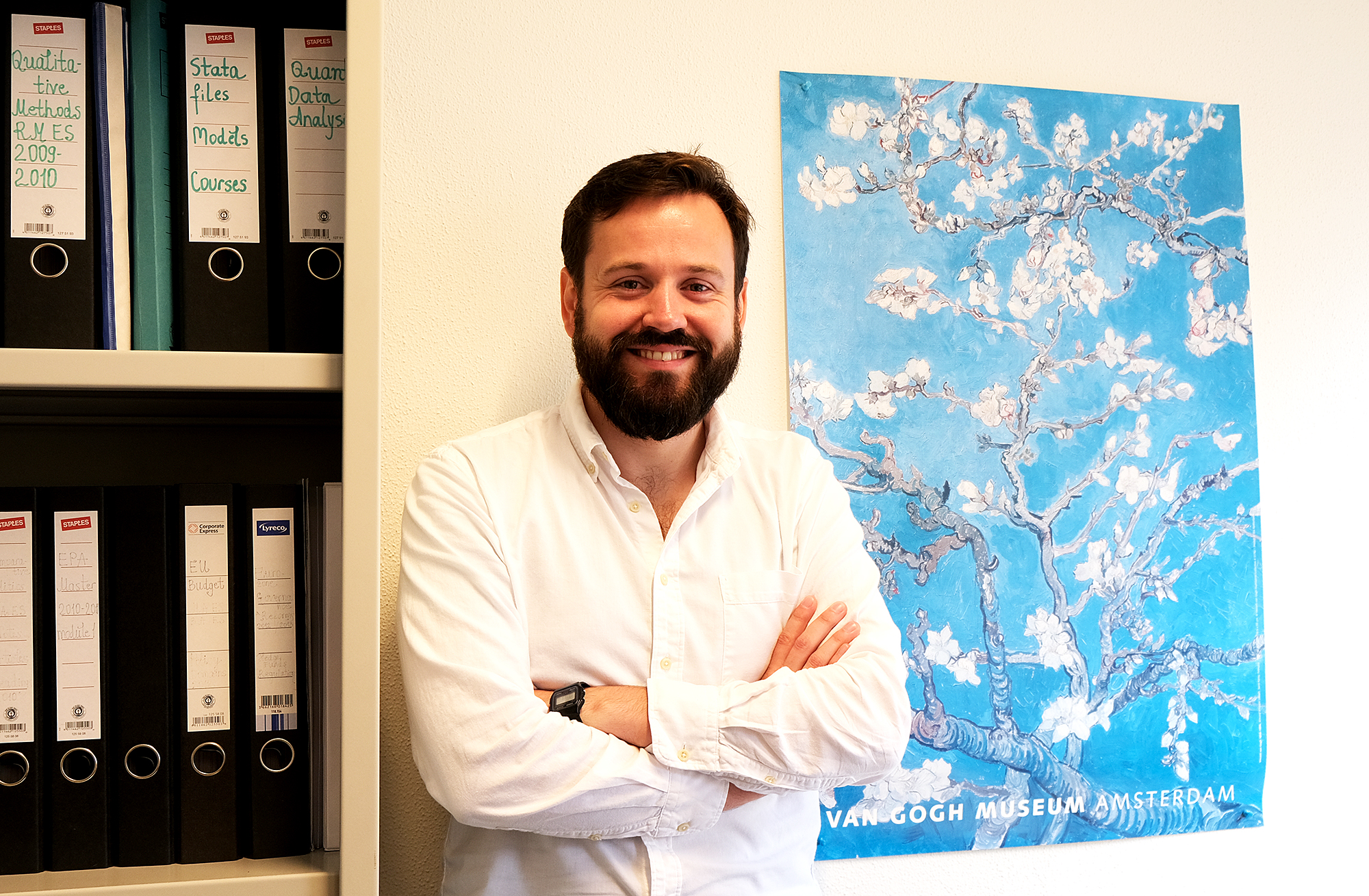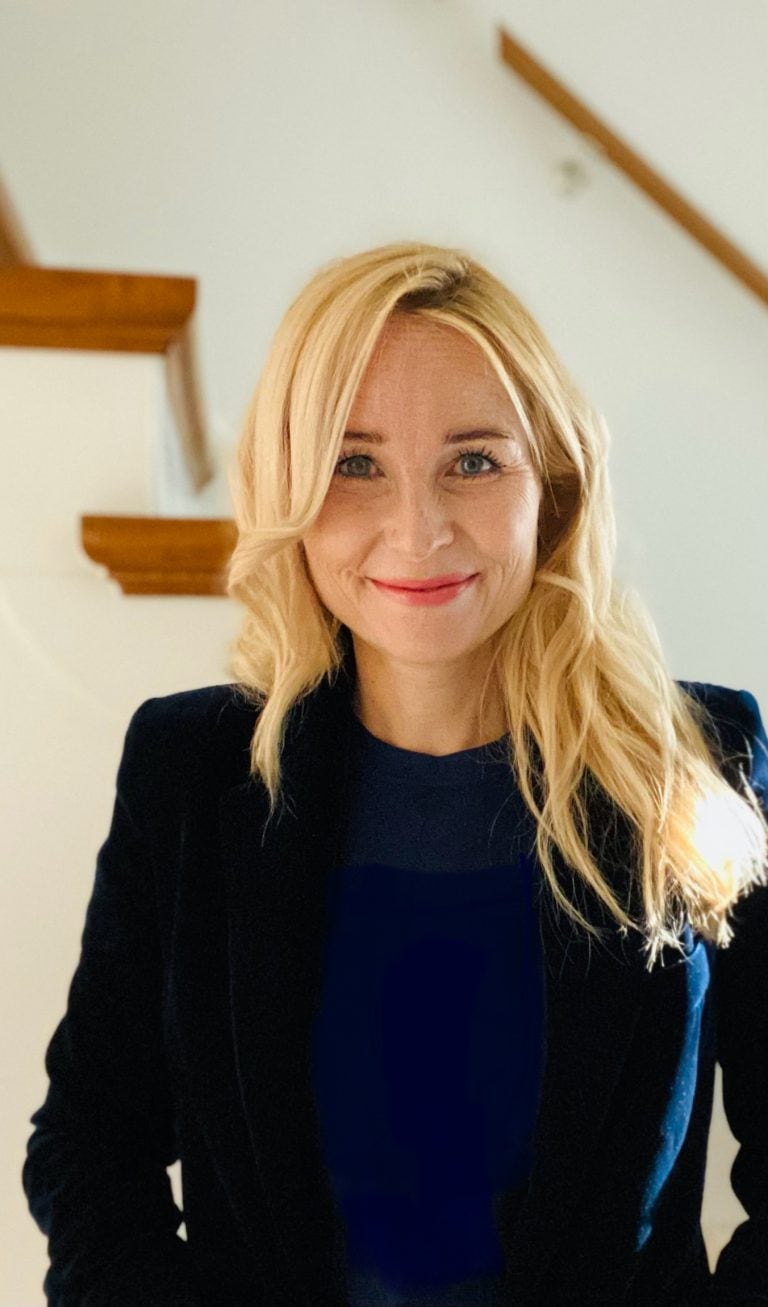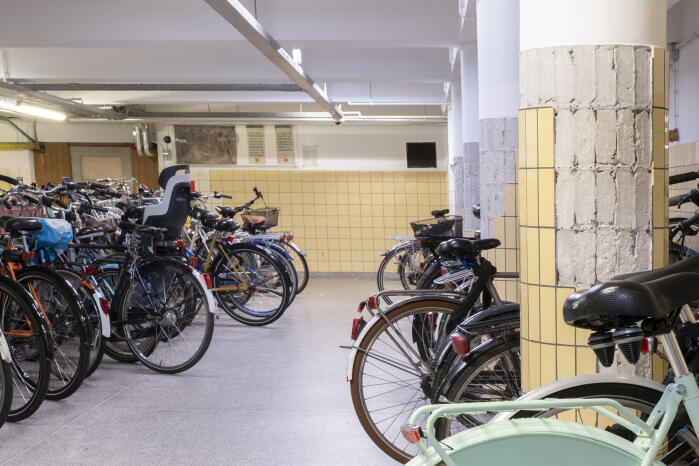Eight Veni grants for young UM scientists
The Netherlands Organisation for Scientific Research (NWO) has awarded a Veni grant to eight young, highly promising UM scientists. In total 154 young scientists receive a Veni grant worth up to 250,000 euros. The grant provides the laureates with the opportunity to further elaborate their own ideas during a period of three years.
Maastricht University congratulates the eight UM laureates: dr. Vigjilenca Abazi (FL), dr. Matthijs Cluitmans (FHML), dr. Tim Hendrikx (FHML), dr. Laurentius Huber (FPN), dr. Miriam Meissner (FASoS), dr. Tim Snijders (FHML), dr. Thomas van Sloten (FHML), and dr. Emiel van der Vorst (FHML).
The Veni is awarded by NWO every year. A total of 1,115 researchers submitted an admissible research proposal for funding. 154 of these have now been granted. That comes down to an award rate of 14%. The submissions were assessed by means of peer review by external experts from the disciplines concerned. In this Veni funding round, NWO is investing a total of 38,4 million euros in free and curiosity-driven research.
The UM laureates will receive grants for the following research projects:
EU Whistleblowing: Empowering Voices of Public Interest
Dr Vigjilenca Abazi (FL)
The importance of whistleblowing is widely acknowledged in the EU, but a wide gap persists in adequate regulation. This negatively affects the protection of rights and the balance between public disclosure and privacy safeguards. This project advances scientific knowledge and the regulatory approach by providing an empirical and legal foundation for a best practices framework and an integrated analysis.
Predicting sudden heart rhythm disorders with computer simulations
Dr Matthijs Cluitmans (FHML)
Life-threatening heart-rhythm disorders can develop suddenly in apparently healthy individuals. In this study, new imaging techniques will be combined with computer simulations to understand the mechanisms of these rhythm disorders. In the future, such simulations will hopefully help to predict an individual’s risk for sudden cardiac death and choose treatment.
Miscommunication in the gut during alcoholic liver disease
Dr Tim Hendrikx (FHML)
Almost 50 percent of all cases of liver cirrhosis, irreversible liver damage, are the result of alcohol abuse. The researcher will investigate the influence of specific bacterial metabolites on immune cells in the gut in order to identify novel targets for the treatment and diagnosis of alcohol-associated liver diseases.
Understanding how the connections between our brain’s cortical layers make us who we are
Dr Laurentius Huber (FPN)
Skills of individual people are associated with unique information-processing mechanisms in very small brain structures, the cortical layers. Scientists will develop new MRI imaging software and use very large MRI magnets to understand how individual people's brains are different.
From minimalism to post-growth?
Dr Miriam Meissner (FASoS)
To achieve climate targets, industrialized societies need develop economic systems that function without growth. Currently, a transformation towards ‘post-growth’ economies is unpopular and therefore unlikely. This research explores the potential of minimalist initiatives in promoting post-growth values and practices through the innovation of everyday organizing patterns.
Healthy aging through smart exercise training
Dr Tim Snijders (FHML)
Aging is accompanied by the loss of muscle mass, resulting in a decrease in overall health and function in seniors. This loss can partly be explained by an age-related reduction in muscle perfusion. This study will investigate if endurance exercise training can restore the impaired muscle perfusion to improve muscle mass maintenance and health in older adults.
Small vessels, big impact
Dr Thomas van Sloten (FHML)
Late-life depression is common, but its underlying mechanisms are largely unknown. The researchers will investigate whether dysfunction of the smallest vessels in the brain leads to depression by causing subtle brain changes. They will also investigate whether treatment that improves vessel function can prevent depression.
Lipids and immune-mediators are instrumental in the development of many chronic inflammatory diseases
Dr Emiel van der Vorst (FHML)
In this project, the applicant will unravel a new mechanism for the crosstalk between both factors.
Also read
-
The 2024 Turriano Prize from ICOHTEC (the International Committee for the History of Technology) was awarded to Jacob Ward’s book Visions of a Digital Nation (MIT Press, 2024). The Turriano Prize recognises the best first book by an historian of technology.
-
Since Hungary took over the rotating presidency of the EU Council on July 1st, its Prime Minister Viktor Orbán has embarked on a widely criticized peace mission for Ukraine, including meetings with leaders of Russia and China. This has led to much speculation about what the next six months of the...
-
The Grote Gracht is richly lined with historical buildings that conceal remarkable stories. Once again, our “hidden gem” is located on this street in Maastricht, this time at number 76: the (bike) cellar.


